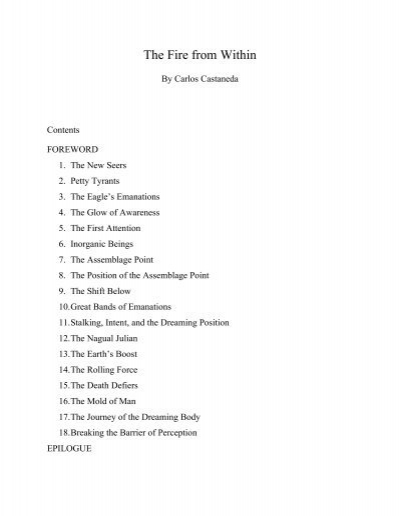I think that the page you quoted explaining Castaneda’s principle of stalking is a bit off the mark, or at least, the description is a bit too ‘ambitious’. It’s been years since I read the Castaneda books, but I recall that the best way that I understood stalking was through the story of, if I remember correctly, a worker/slave and the slave master at a plantation. I tried to search for this story online, but without success. Maybe someone else can remember from which book this was, and how the story went exactly. From what I remember, this slave/worker was abused by the master, but he bid his time and applied the art of stalking, carefully planning his revenge, being strategic and not reacting emotionally to any of the abuse.Thank you for that reminder about "stalking". I continually look outside myself, trying to help order the chaos around me instead of taking the time to tend to my own house first. I let external events take me off course too often. I'm usually pretty good at finding the things I need to work on and release otherwise.
I did find someone posting ‘the seven principles of stalking’ that is close to the way I remember it from the books:
1) Choose your battleground--a warrior never goes into battle not knowing what the surroundings are.
2) Discard everything that is unnecessary.
3) Apply all the concentration you have to decide whether or not to enter into battle, for any battle is a battle for one's life. Don't complicate things. Aim at being simple.
4) Relax, abandon yourself, fear nothing; only then will the powers that guide us open the road and aid us.
5) When faced with odds that cannot be dealt with, warriors retreat for a moment, they let their minds meander, they occupy their time with something else.
6) Warrior's compress time, even an instant counts. A second is an eternity, an eternity that may decide the outcome; Aim at succeeding.
7) A stalker never pushes himself to the forefront.
Apply the principles of stalking to daily life, small things at first, leading up to major issues.







